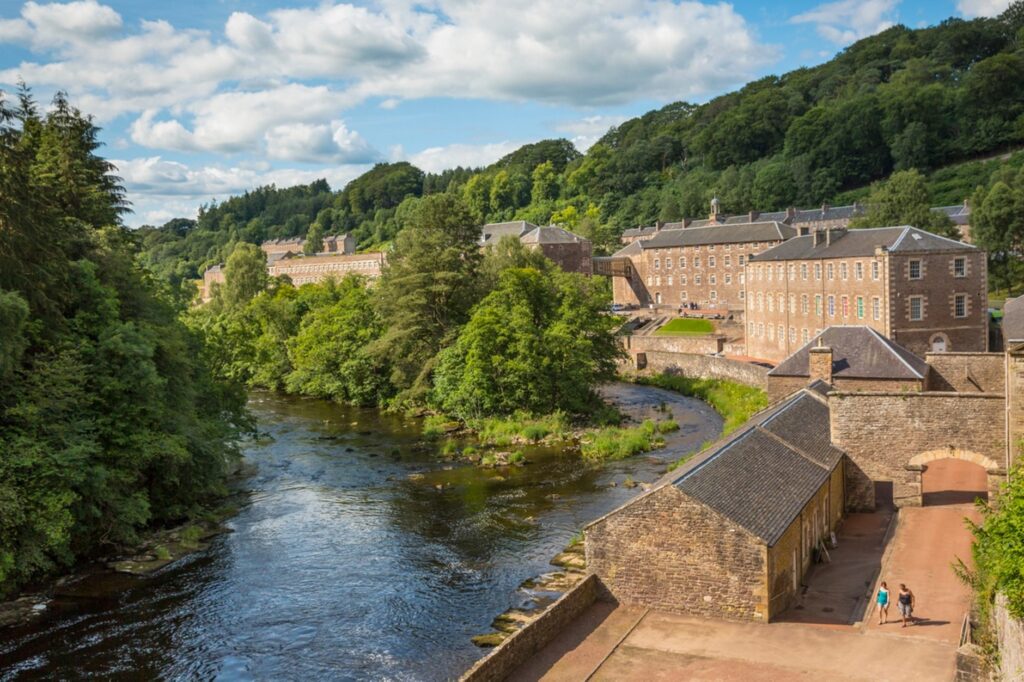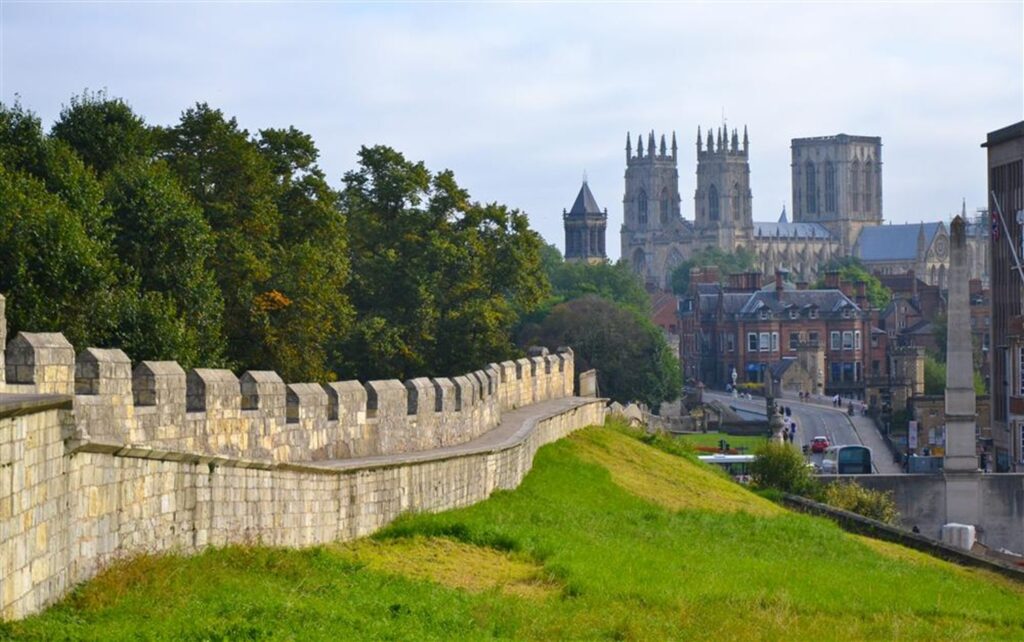Place names are an integral part of our cultural heritage, providing us with insights into the history, geography, and language of a region. The origins of British place names are a fascinating subject that unveils a rich tapestry of influences from various languages and cultures. From quaint villages to bustling cities, each name has a unique story to tell. In this blog, we will delve deeper into the enigma of British place names, exploring their origins and unravelling the linguistic threads that have shaped them.
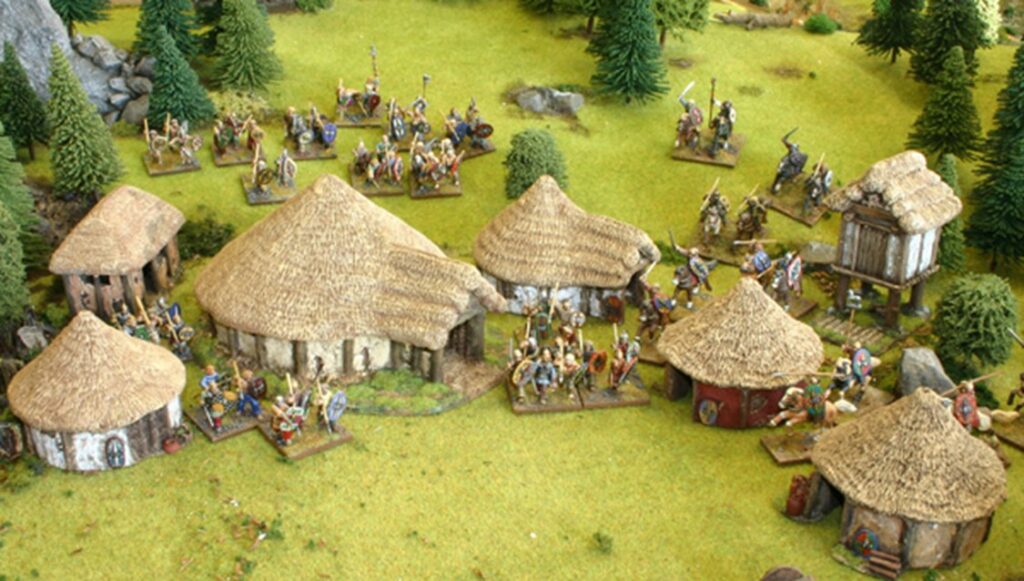
Celtic Influences
The story of British place names begins with the Celtic tribes that inhabited England in pre-Roman times. Many place names in England bear the mark of the ancient Celtic language, such as the word Avon which appears in numerous town names like Avonmouth and Bradford on Avon. Avon is derived from the Celtic word afon meaning river, showcasing the deep connection between the ancient Celts and the rivers that flowed through the land.
Roman Footprints
The Roman invasion on Britain in 43 AD brought Latin influence to the region, leaving a lasting legacy on British place names. Latin words and suffixes were commonly incorporated into place names during the Roman rule, particularly to denote forts and settlements. For example, the suffix cester or chester often signifies a Roman fort or camp, as seen in names like Worcester and Winchester. Similarly, the word street or strat comes from the Latin word strata, meaning paved road. This can be found in names like Stratford-upon-Avon and Streatham.
Viking Traces
The Viking invasions of Britain in the 9th and 10th centuries left a significant impact on the language and culture of the region, including its place names. Many towns and villages in northern and eastern England, where the Viking settlements were concentrated, bear place names with Old Norse origins. Norse-influenced names include Thorp or Thorpe , which means village in Old Norse, found in names like Scunthorpe or Althorp.
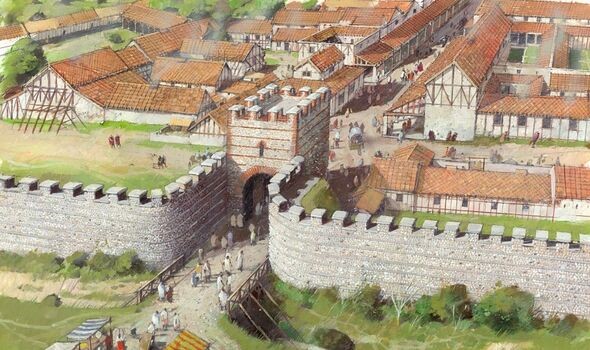
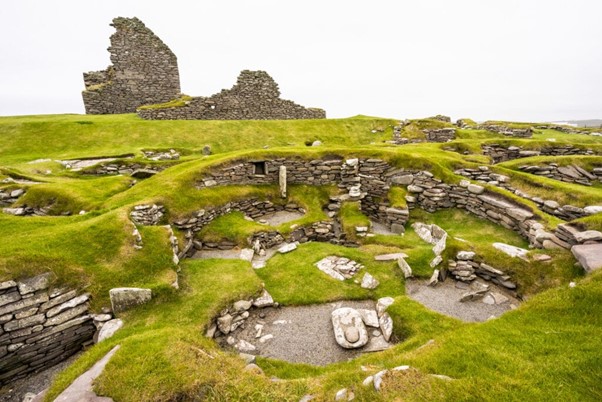
Norman Impressions
The Norman Conquest of England in 1066 by William the Conqueror brought French influence to the English language, resulting in the adoption of French words and names in England. Many English place names with the prefixes Beau- or Belle- meaning beautiful or fair can be traced back to the Norman-French language, such as Beaulieu and Belle Vue.
Religious Significance
Religion has played a significant role in shaping British place names as well. During the spread of Christianity through England, many places were named after saints, reflecting the influence of religious beliefs on the local communities. For example, towns like St. Albans, St. Ives, and Bury St. Edmunds bear the names of saints. Additionally, the word church or chapel is commonly found in British place names, like Whitchurch or Chapel-en-le-Frith, highlighting the importance of religion in Britain’s history and culture.
Local Dialects and Natural Features
In addition to these influences, local dialects and natural features of the landscape have also played a role in the origins of English place names. For example, the name Cambridge is believed to have originated from the Old English word Granta, which was the name of the river that runs through the city. Bournemouth is named after the river Bourne, and the village of Oakham is named after the oak trees that once populated the area. These natural features have shaped the way people perceive and interact with the land, and their names continue to hold significance in the local communities. Additionally, over time, local dialects and accents have influenced the pronunciation and spelling of place names, resulting in unique variations and quirks. For example, the town Leicester is pronounced “Lester” and the village of Happisburgh is pronounced “haze-borough”.
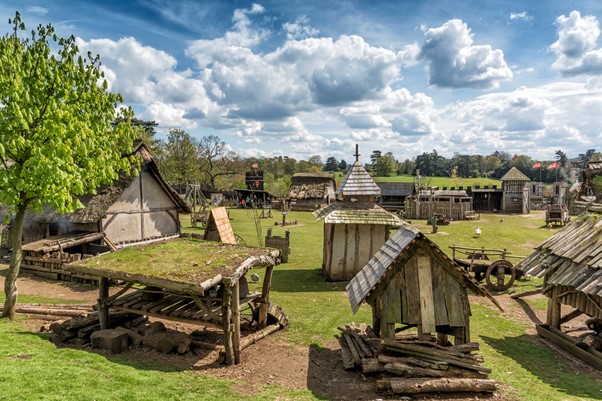
Let’s take a look at the origins of different British cities and how they got their name:
London
London developed from the Latin name Londinium which was the Roman name for the city. The Romans founded Londinium in 43 AD and it quickly became a thriving commercial and cultural centre. The name Londinium likely comes from the Celtic word lond or lon meaning wild, combined with the Latin suffix -inium meaning place of. Wild would have been a good descriptor or our far grassier capital a thousand years ago!
Liverpool
Liverpool gets its name from the Old English word Liferpōl which means muddy creek. The refers to the muddy estuary of the river Mersey on which Liverpool was founded. The city became a major port during the Industrial Revolution and its importance as a trade hub contributed to its growth and prosperity.
Edinburgh
The name Edinburgh evolved from the original name Eadhelm’s Burg which means Fort of Eadhelm. Eadhelm was a Saxon chief who established a fort on the site of the modern-day city in the 7th century.
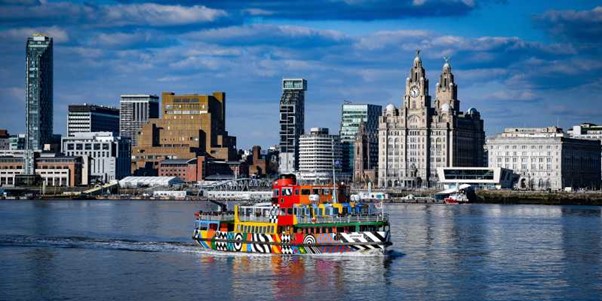
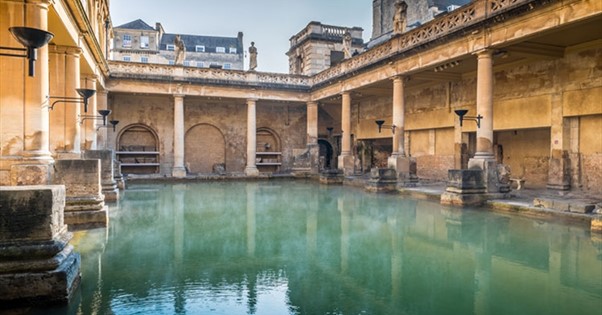
Bath
The city of Bath is famous for the Roman Baths, which is linked to how it got its name. The name comes from the Latin word Aquae Sulis meaning Waters of Sulis. Sulis was a Celtic goddess of healing and Bath’s hot springs were considered sacred in ancient times.
Glasgow
Glasgow got its name from the Gaelic word Glaschu meaning dear green place which refers to the city’s location on the River Clyde, surrounded by green hills and countryside. Glasgow has a long history of trade and commerce, and its importance as a centre of industry aided its development.
York
York is known for its Viking heritage which is connected to the origins of the name. The name York derives from the Old English word Eoforwic meaning wild boar village. This reflects the city’s location in a dense forest that was home to wild boars in ancient times. The Vikings captured and settled in York in the 9th century, and the city became a valuable place of trade and commerce.
In conclusion, British place names are a fascinating reflection of the nation’s history, language, and culture. They reflect the diverse influences that have shaped the land and its people over time, from the ancient Celtic tribes and Roman invaders to the Viking settlers and Norman conquerors, as well as the local dialects and natural features. Figuring out the history of your hometown can help you to understand your ancestors, their stories, and lives even more so take a moment to unravel its mysteries to appreciate its history.
